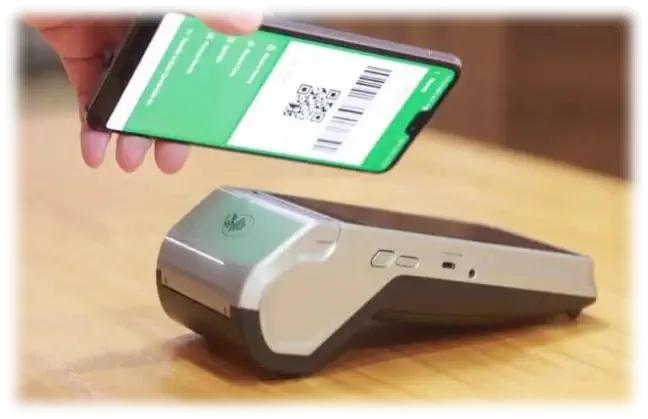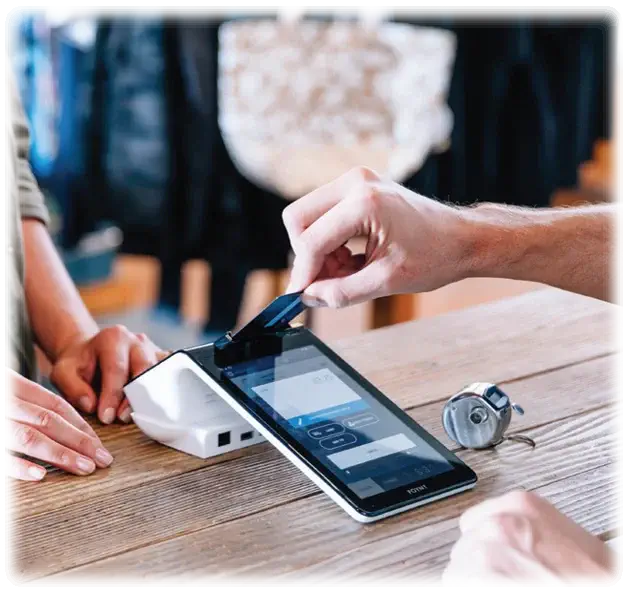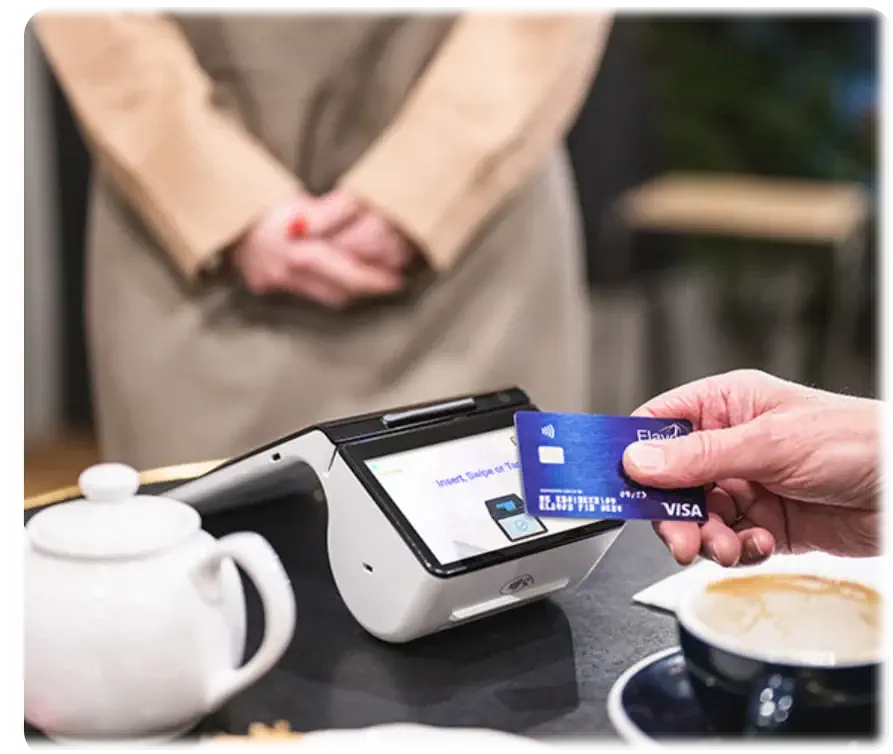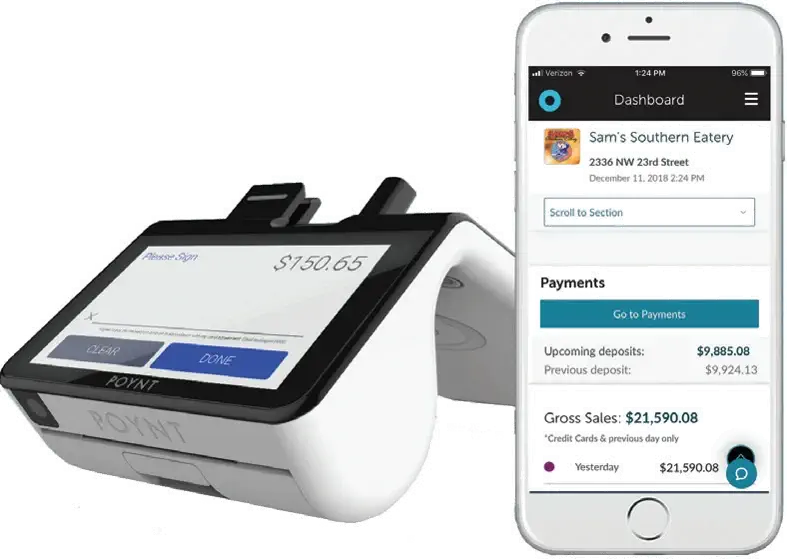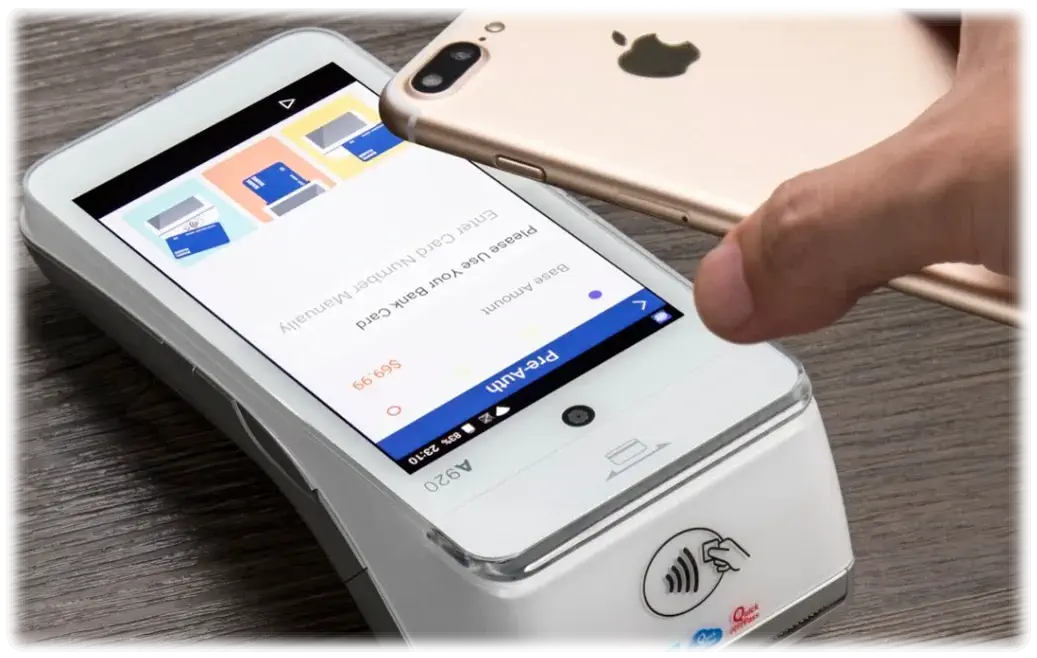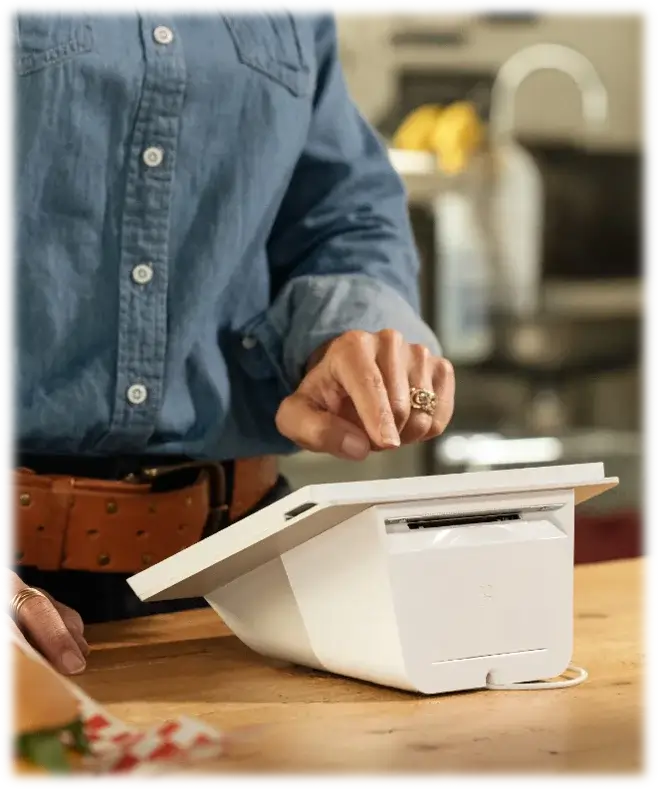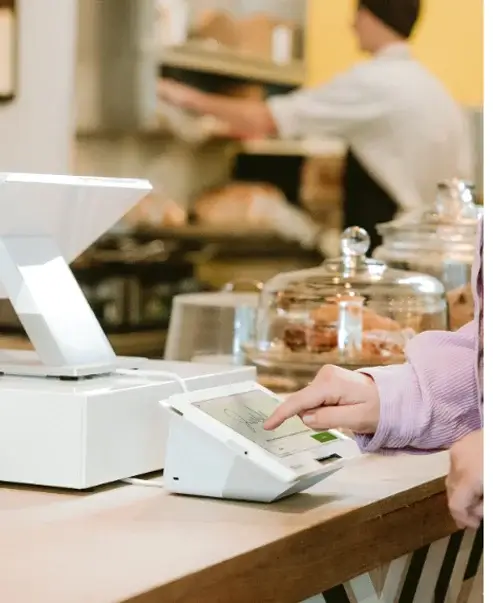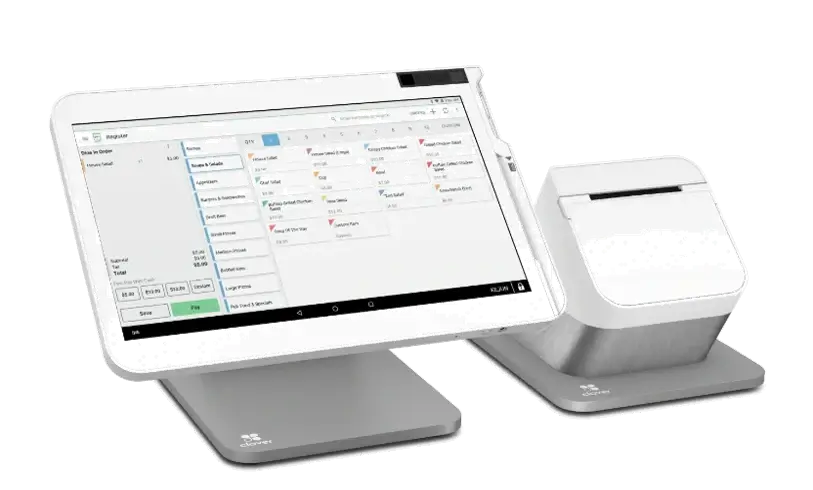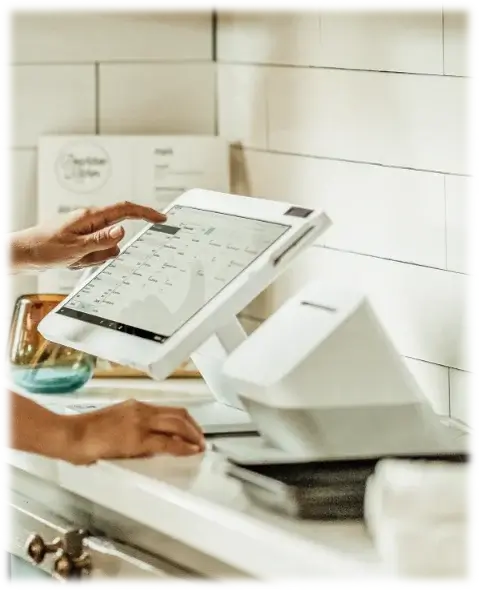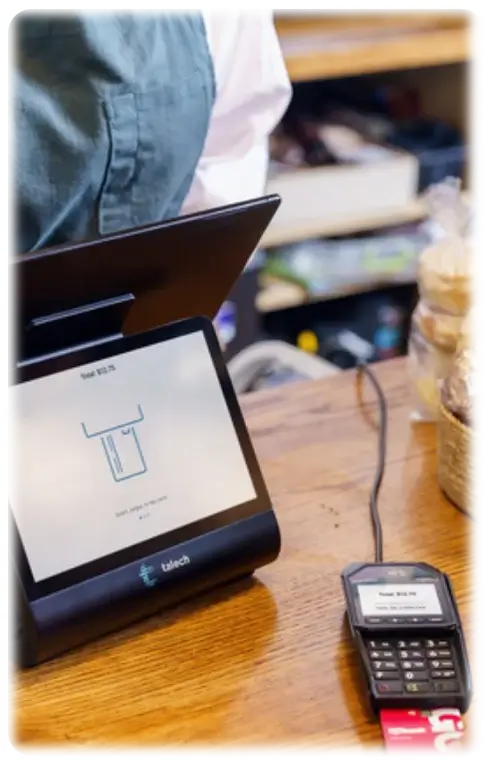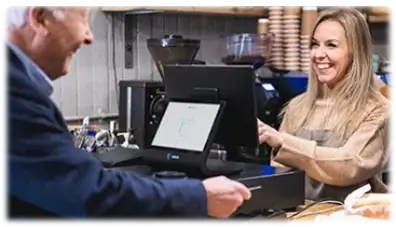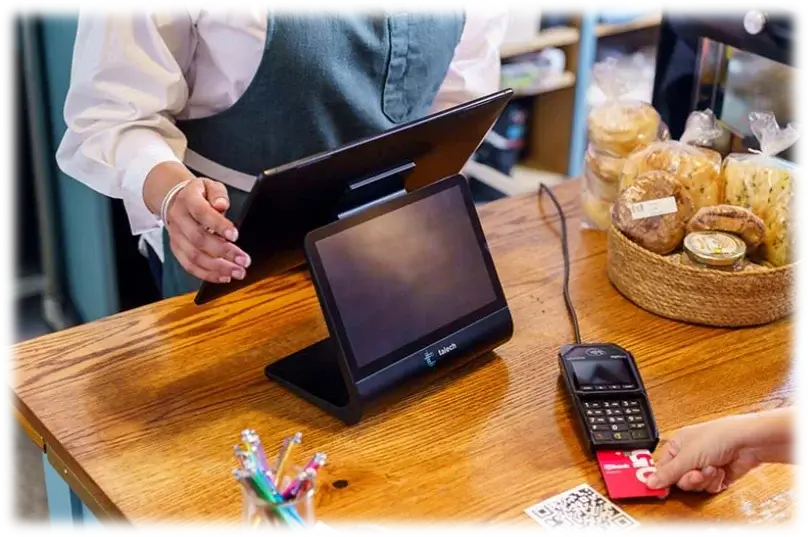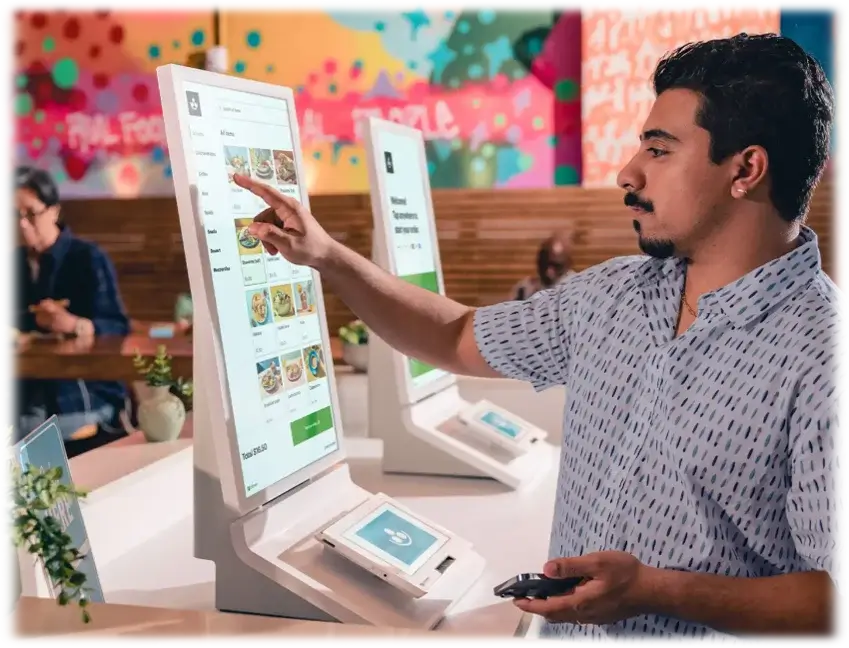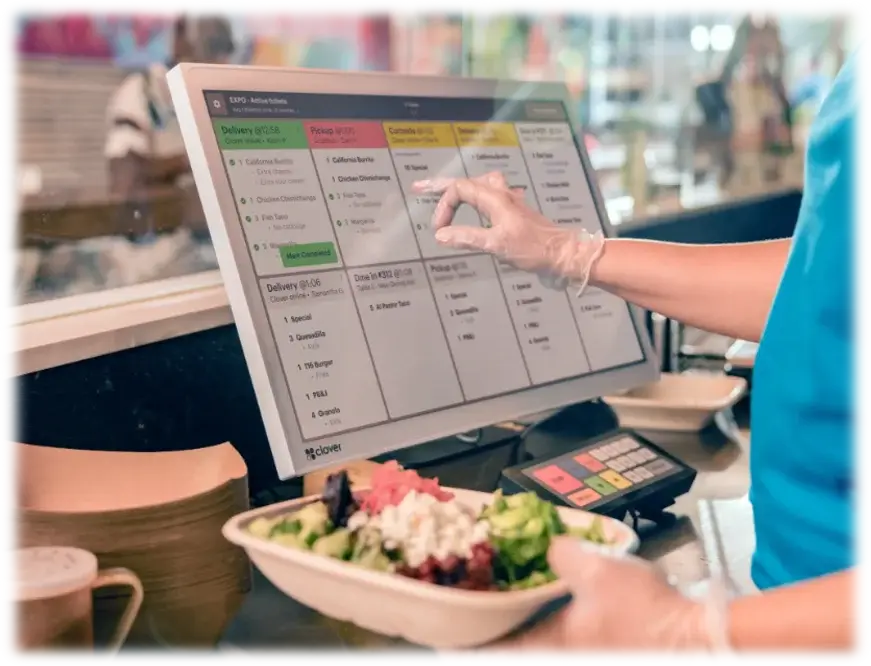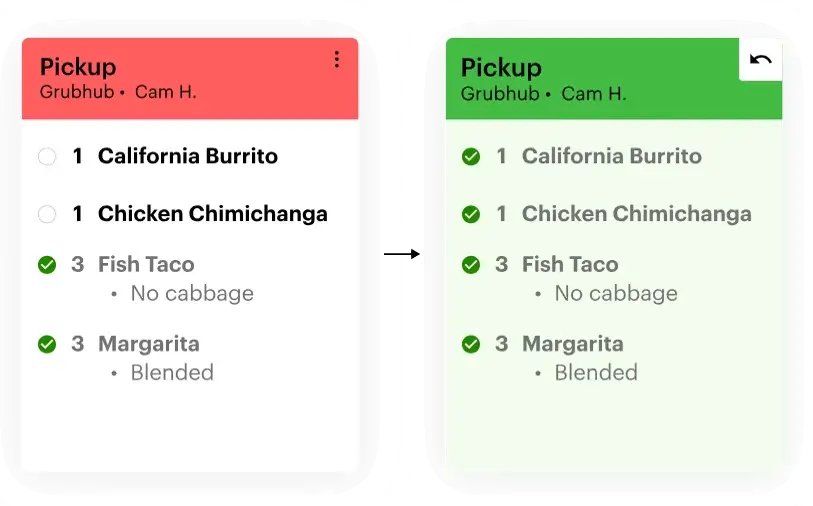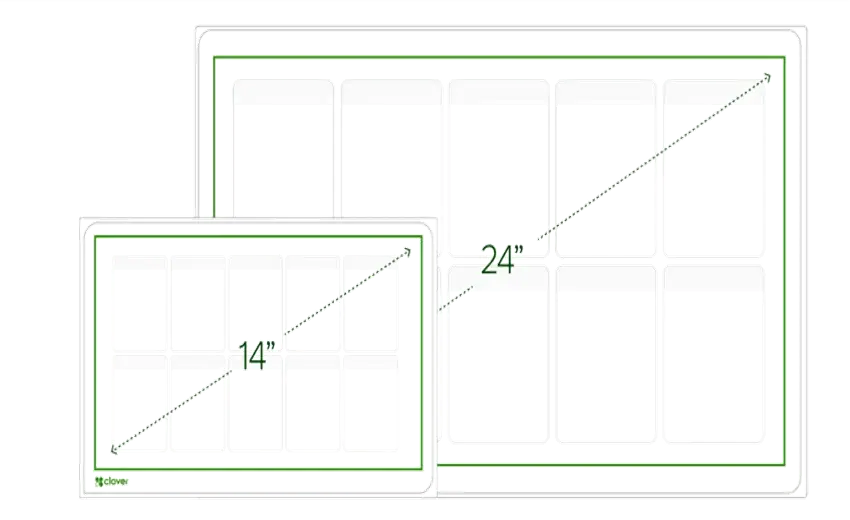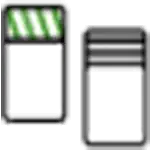Credit Card Terminal Vs Pos System: Which Should You Choose? The Key Difference And Benefits
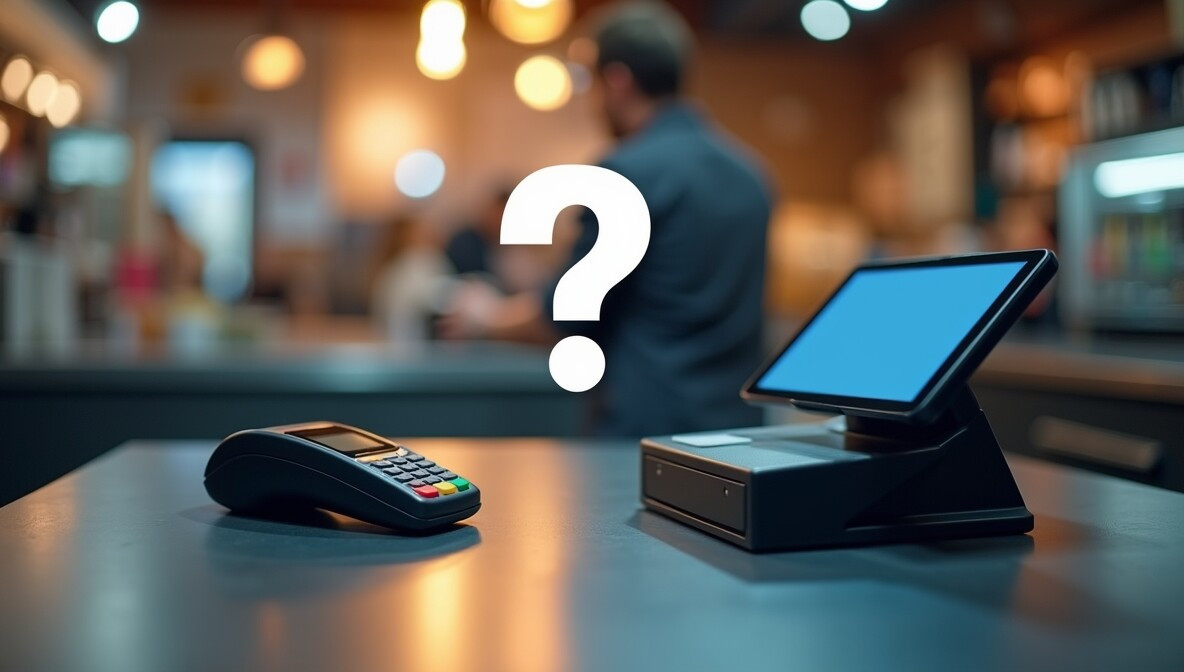
You operate a small business or retail outlet in the USA, and each customer that enters your store anticipates effortless, lightning-speed payment processing. You don't want to wait in lines at checkout, deal with security vulnerabilities, and incur high expenses. The big question is — do you opt for a basic credit card terminal or invest in an integrated POS system?
The reality is that comprehending the differences and benefits of each can make or break your business's efficiency and customer experience. Today, I'll take you through all of it — from what a credit card terminal is to how to select the best POS system for your small business, all in an informal, easy-to-grasp language.
What Is A Credit Card Terminal? Essential Payment Machine For USA Merchants
So you must have been wondering what a credit card terminal is? Essential payment machine for the USA merchants? A credit card terminal is a payment terminal that enables merchants to process credit and debit card transactions quickly and securely.
Consider credit card terminals for small businesses in the United States to be the reliable workhorses for credit card processing. These units, commonly referred to as credit card machines, are specifically designed for quick and secure transactions, particularly for small businesses, retail establishments, or new companies that require a simple method of card acceptance.
What is a credit card terminal? It is basically a payment terminal or point-of-sale terminal that is connected to payment networks to accept and process card payments. They are available in different types — from wired credit card terminals to wireless credit card terminals for small businesses, to even portable credit card machines for mobile sales.
How Does A Pos System Differ From A Credit Card Terminal?
A POS system is a complete solution that integrates a point-of-sale terminal with other business management software. A credit card terminal, however, primarily deals with payment processing.
With 'POS system vs. terminal' in mind, consider the advantages and disadvantages of each — what better fits your business requirements?
A POS system (or pos terminal) combines payment acceptance, inventory management, sales tracking, and customer data under one umbrella. It's having a mini-business brain at your checkout.
A credit card terminal is actually closer to a payment point terminal — designed primarily for credit card payment or pos payment processing.
In short:
Terminal Vs Pos System Advantages And Disadvantages:
- Terminal: Simpler, cheaper, faster setup, ideal for transactions only.
- POS system: More features, scalable, better for retail and restaurants.
Why Might A Small Business Need A Credit Card Machine?
It’s a cost-effective and reliable way to accept card payments, especially if you’re starting or have a low transaction volume.
Advantages Of A Small Business Credit Card Terminal:
- Quick transactions: Top credit card terminals for quick transactions cut down wait time.
- Simple installation: How to install a credit card terminal in 5 simple steps — quick and easy.
- Economical: Reduced installation and maintenance costs.
- Secure payments: Facilitates credit card processing for small businesses with strong security.
- Portability: A Wireless credit card terminal for small businesses enables payment acceptance anywhere.
In the USA, most small businesses opt for credit card terminals for their business processes due to their ease of use and reliability.
Why Is A Pos System A Smarter Choice For Growing Enterprises
It offers a comprehensive business solution that enhances growth, inventory management, customer tracking, and sophisticated analytics.
The benefits are:
- Single platform: Manage sales, inventory, and customer data seamlessly.
- Improved customer experience: Quicker checkouts and loyalty programs.
- Improved data insights: Make wiser business decisions with comprehensive reports.
- Scalability: Easily add new features or hardware as your business expands.
Choose the best POS system for your small business by considering your current needs and future growth plans. For example, if you’re a retail store or restaurant in the USA, a pos system with a card reader can be a game-changer.
What Are The Security And Compliance Benefits Of Credit Card Terminals And Pos Systems?
Both provide high security, but POS systems can tend to include more robust fraud protection and compliance features.
Why security is essential:
- PCI DSS compliance: Both credit card terminals for businesses in the United States and POS systems follow guidelines that ensure the protection of customer data.
- Tokenization and encryption: Both technologies protect payment information during transactions.
- Fraud detection: Advanced POS systems usually come with fraud detection capabilities.
With Regards To Security And Compliance:
- Credit card payment terminals are ideal for small businesses that require easy and secure transactions.
- Advanced POS systems feature built-in security measures, making them suitable for retail businesses that process large volumes.
How Do Costs Compare: Terminal Vs Pos System?
The cost of a terminal vs. a POS system depends on hardware, features, and scalability.
| Feature | Credit Card Terminal | POS System |
| Initial Cost | Usually lower (around $100–$300) | Higher (can be $500–$2000+) |
| Monthly Fees | Usually minimal | Monthly subscription or leasing fees |
| Transaction Fees | Varies, often lower for simple terminals | Can be negotiated with providers |
| Maintenance | Minimal | May include updates, support |
Tip: For small businesses, having a credit card terminal is a cost-effective start. However, if you plan on growing, purchasing a POS system might be more expense-effective in the long run, offering premium features and scalability.
Is A Credit Card Terminal Simpler Than A Pos System?
Yes, credit card terminals are easier and quicker to install and operate than complete POS systems.
How to decide:
- For speedy and simple payment processing, consider using a credit card machine.
- If you require additional functionality, such as inventory tracking, sales analysis, or customer monitoring, a POS system is a worthwhile investment.
Pro tip: 5 simple steps to set up a credit card terminal — plug it in, connect to Wi-Fi or phone line, turn it on, and begin taking payments.
How Credit Card Terminals And Pos Systems Influence Customer Experience
Both enhance customer experience, but POS systems tend to be faster and smoother.
Benefits for customer experience are:
- Quicker transactions: The fastest credit card terminals enable quick transactions, reducing lines.
- Multiple payment options: Contactless, mobile wallets, chip, and swipe.
- Personal service: POS systems save customer information for loyalty programs.
- Portability: Wireless credit card terminals for small businesses allow checkout anywhere.
In a hospitality or retail business, a payment POS terminal or point-of-sale credit card terminal streamlines the checkout process, making it hassle-free and promoting repeat business.
How Do You Integrate Payment Processing Solutions: Credit Card Terminals Vs Pos Systems?
Integration varies based on your business size and requirements. Most credit card processing terminals support standalone mode or work in conjunction with POS systems.
Integration tips:
- For small businesses: A payment terminal can be used standalone, especially if you don’t need inventory management.
- For growing companies: Use pos system with a card reader to unify payments, inventory, and customer data.
- How to integrate: Check if your credit card terminal supports POS payment integration or if you need a payment gateway.
Recall That Most payment terminals and POS systems can be integrated with major payment processors in the USA, making the process easy.
Expert Insights: Which Payment Solution Enhances Business Efficiency?
For rapid credit card processing for a small business, a credit card machine is a perfect starting point. However, when seeking long-term efficiency, a POS system with card reader functionality provides greater advantages.
From experience:
- Small businesses may begin with a wireless credit card terminal as an initial, low-cost, and easy-to-use option.
- Industry giants favor integrated POS systems as sales expand, enabling improved analysis and enhanced customer interaction.
Last tip: Utilize the best credit card terminals for your POS equipment to achieve maximum performance and prevent overheating, especially in high-traffic facilities.
Top Things To Keep In Mind When Deciding Between A Credit Card Terminal And A Pos System
- Volume of transactions: Greater volume is better suited to POS systems.
- Types of businesses that benefit from POS capabilities include retail, restaurants, and hospitality.
- Budget: Start small with a credit card terminal; scale up with a POS.
- Expansion plans: Plan with a POS system if growth is on the horizon.
- Security requirements: Both are safe, although advanced POS systems offer more options.
- Customer experience: Expediting checkout and making it smooth enhances loyalty.
Industry-Specific Recommendations
| Industry | Recommended Payment Solution | Why? |
| Retail | POS system with card reader | Inventory management + sales analytics |
| Restaurants | POS system with table management | Speed + order accuracy |
| Small startups | Wireless credit card terminal | Cost-effective + portability |
| Service providers | Portable credit card machine | Flexibility + ease of use |
Future Directions In Payment Technology: What Comes Next?
Look for more bundled POS systems, contactless transactions, and mobile wallets. Cloud-based solutions will break down the barrier between credit card terminals and POS systems.
Leading trends:
- Biometric security for credit card payment terminals
- AI-powered analytics in POS systems
- Better security protocols for credit card processing for small businesses
Frequently Asked Questions
Q1: What is the difference between a terminal and a POS system?
A: The terminal is primarily for processing card payments, whereas a POS system is an entire business management system consisting of sales, inventory, and customer information.
Q2: What are the four types of POS systems?
A: Classic desktop POS, mobile POS, cloud POS, and hybrid POS.
Q3: What is a POS terminal?
A: It's a point of sale terminal used for making payments and typically consists of hardware such as credit card machines for business startups.
Q4: What does terminal mean on a receipt?
A: It refers to the payment terminal used during the transaction, usually the terminal ID.
Q5: How to use a POS terminal for payment?
A: Insert or swipe the card, authorize payment, and print or email the e-receipt.
Q6: How is it possible to accept card payments at the lowest cost?
A: Through the use of a wireless credit card terminal for small businesses with low fees.
Q7: How is a POS terminal different from a payment gateway?
A: A POS terminal processes payments physically; a payment gateway is a software application that sends payment information online.
Q8: Can I utilize my phone as a POS terminal?
A: Yes, through mobile POS apps and payment pos terminal hardware.
Final Thoughts: Which Is Right For Your Business?
Selecting a credit card terminal or a POS system relies on your business size, growth strategy, and particular requirements. If you're looking for quick transactions with little hassle, a credit card machine is ideal. However, if you're looking for long-term efficiency and scalability, spending money on a pos system vs a terminal with built-in features will work better for you.
Keep in mind that in the USA, top credit card terminals for quick transactions and credit card processing for small businesses are readily available. Shop intelligently and select the solution that drives your business forward.
Ready To Make Your Payment Choice?
If you're still in doubt, read about how to install a credit card terminal in 5 simple steps or ask an expert to select the perfect POS system for your small business. Either way, ensure that your hardware is in excellent condition.


